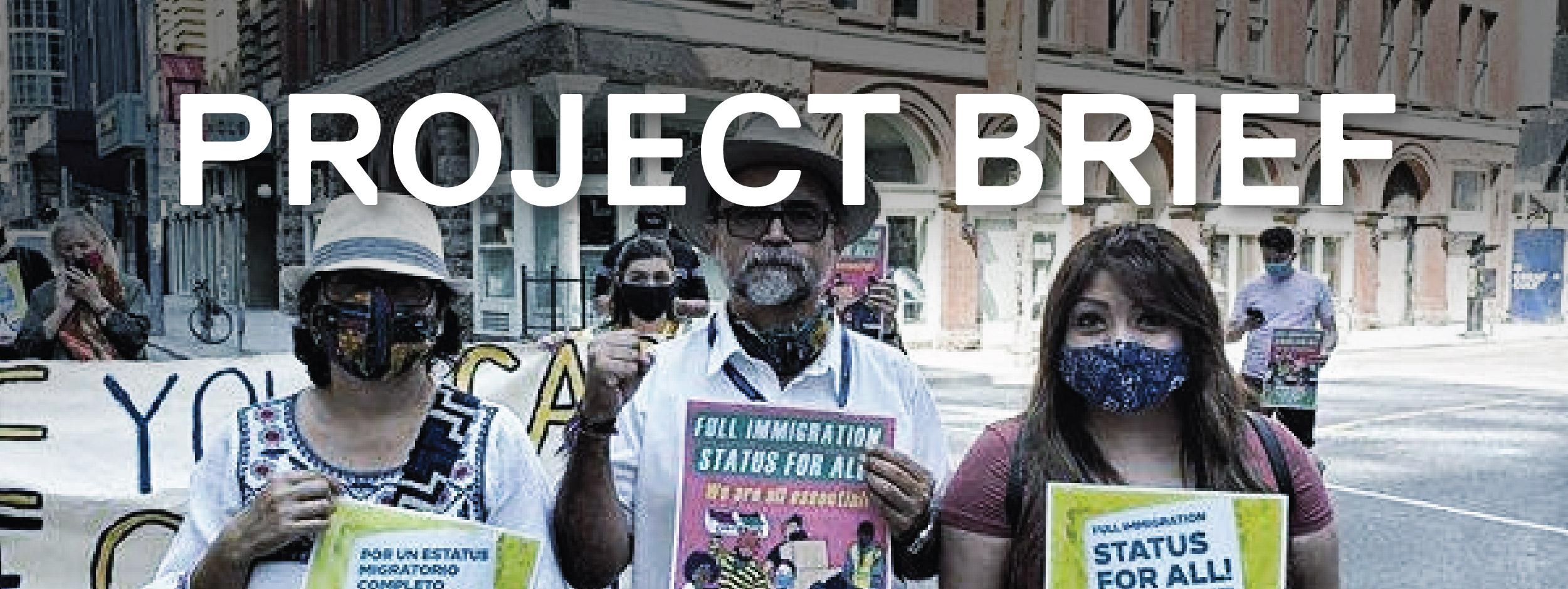CONTESTATIONS of migration and belonging in Canada amidst COVID-19

Photo credit: FCJ Refugee Centre

John Carlaw (lead), Kushan Azadah

The goal of this project is to identify and examine the current state of narratives and politics of migration and belonging in Canada amidst and emerging from the COVID-19 pandemic. This period has featured rapidly shifting policies, discourses, and understandings of belonging and who is “essential” and whom and how members of society living under temporary and precarious immigration status might have “pathways” to permanent residence. It has also sparked civil society responses to the inequalities and risks experienced by migrants and immigrants. Examining such discourses and approaches is expected to reveal much about the contemporary political migration landscape.

- How are state and civil society projects of migration and belonging from “above” and “below”, highlighted by responses to the COVID-19 pandemic?
- How have political narratives of migration and belonging shifted amidst COVID-19? Have they shifted in inclusive or exclusionary directions?

This project’s goal is to deepen our understanding of narratives and political approaches to migration and societal belonging in Canada by examining dominant, hegemonic and emerging subaltern projects, discourses and movements of belonging and exclusion. The COVID-19 pandemic has driven a period of turmoil and rapid change that has prompted state and civil society actors to act and frequently articulate and justify their approaches.
For its part, the Canadian government’s approach to migration amidst the pandemic has been mixed. On the one hand, for example, it has engaged in discourses recognizing the essential economic and social contributions of migrants and immigrants while making incremental and temporary program changes to facilitate access to permanent residence for some. On the other, it has largely closed the Canada-US border to asylum seekers and continues to exclude many migrants from pathways to citizenship. Pushing for a more inclusive society and responding to exploitative conditions – including preventable deaths – civil society responses from below have included small scale to nation-wide resistance, protests and demands. These have included calls for improved working conditions, a comprehensive regularization program, vaccines and “status for all,” and an approach that recognizes that “refugee travel is essential.” Such contrasts demonstrate that commonalities and differences between approaches from above and below are significant not only in terms of discourse and ideology, but because they result in policy prescriptions, outcomes, and social relations of tremendous significance.

Employing a Critical Policy Discourse Analysis (CPDA) methodology, this project exams political and policy discourses of migration and belonging from government and civil society actors through the compilation and comparative analysis of publicly available documents, particularly news and press releases, mandate letters and responses to them. This approach is attractive for such a project for its explicit and combined attention to both discourse and policy within a larger social context in a manner that is attentive to questions of power and social relations. Primary sources have been collected, organized and are being coded and analyzed with the assistance of NVivo software. Relevant secondary literature will also be considered.

Collection and coding of research materials and literature review are complete for documents addressing immigration levels, access to permanent residence and citizenship, and ongoing for those related to asylum. The project framework (2022) and preliminary findings (2023) have been shared in Canada at the Canadian (CPSA) and Prairie (PPSA) Political Science Associations, as well as at the International Political Science Association (IPSA) and European Council of Political Research (ECPR) conferences both individually and as part of panels organized by our project lead on the theme of the pandemic, migration policies and their politics. Publishable results will be available in 2023 and winter, 2024.
Related news, publications and video
(Forthcoming May, 2024). Carlaw, J. & Azadah, K. Pathways to permanence and immigration levels: A critical policy discourse analysis (CPDA) of struggles and limits to societal membership for migrants amidst and emerging from COVID-19 (2020-2022) in Canada. Toronto Metropolitan Centre for Immigration and Settlement (TMCIS)/Canada Excellence Research Chair in Migration and Integration (CERC) Working Paper Series.
(2024). New grant supports research into the changing landscape of migration politics. (April 4)
(2024). Three Arts researchers receive SSHRC funding for projects in psychology, economics and migration. (March 28)
(2024). Time running out for more inclusive policies? ‘Pathways’ Debates and Demands for Access to Permanent Immigration Status in Canada.” (external link) European University Institute Migration Policy Centre Blog.
(2024). Pathways to permanence and immigration levels: limits to societal membership for migrants in Canada (external link) (Video, Migration Policy Centre, Robert Schuman Centre for Advances Studies, European University Institute. (October 4)
(2023). Declining naturalizations signal larger problems in Canada's citizenship and immigration system (external link) , The Conversation.
With Winter, E. (2022). Conservatism and the Re-Communitarianization of Citizenship in Canada, external link (external link) . Nationalism and Ethnic Politics, 1-21.

Winter 2024

CERC Migration

migration discourses, COVID-19, political narratives, Canada, immigration, migration